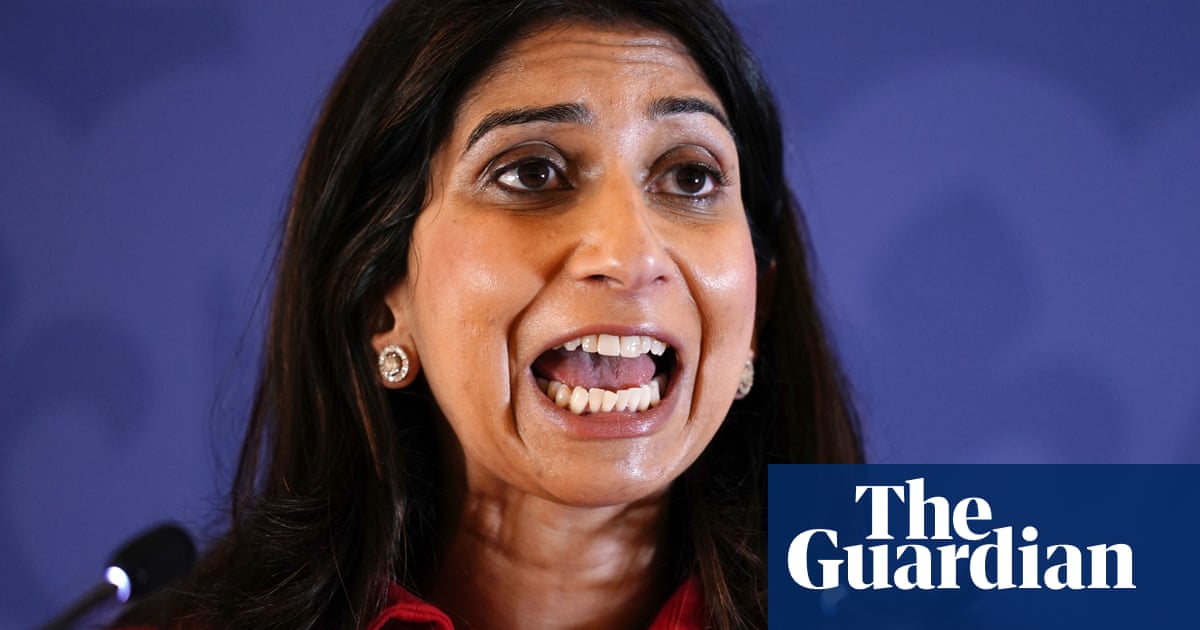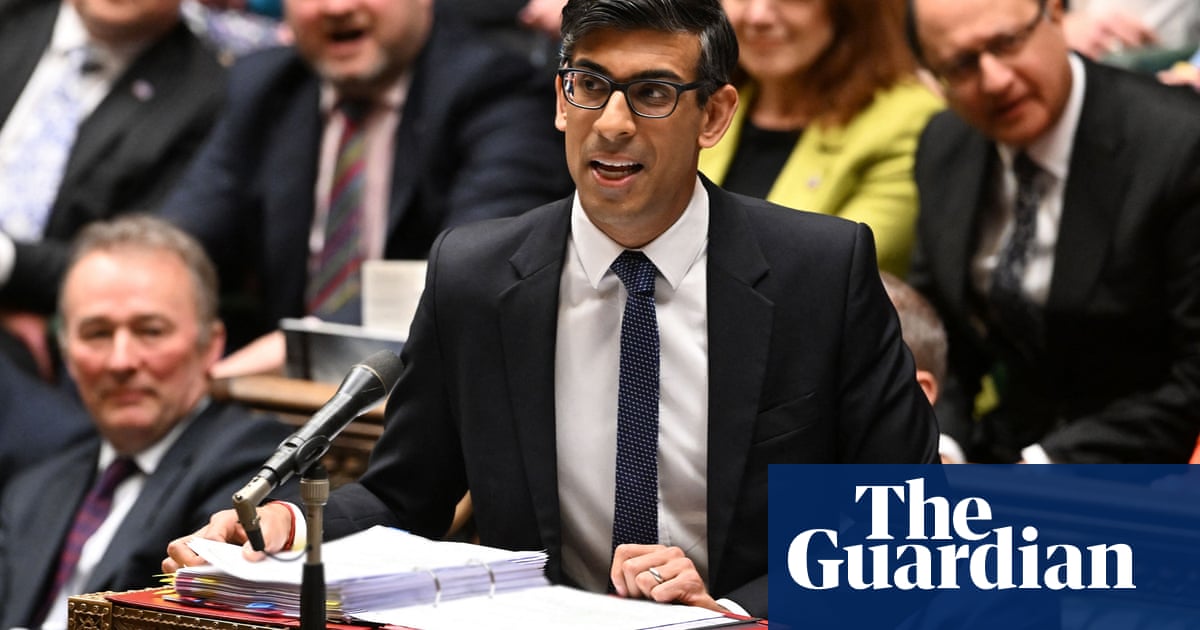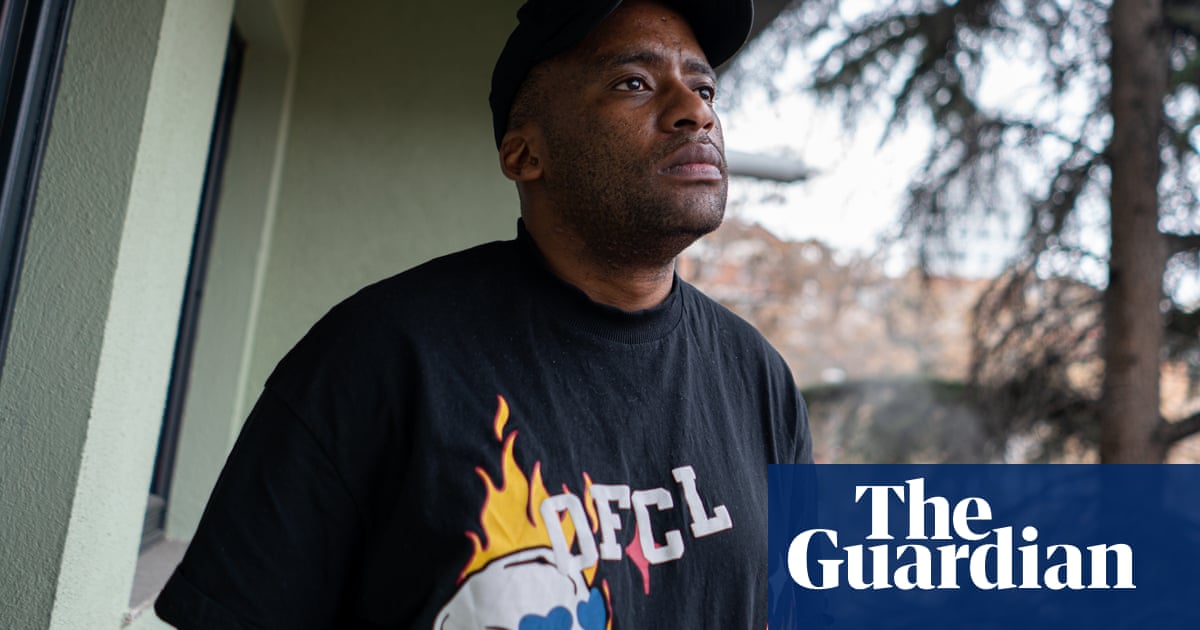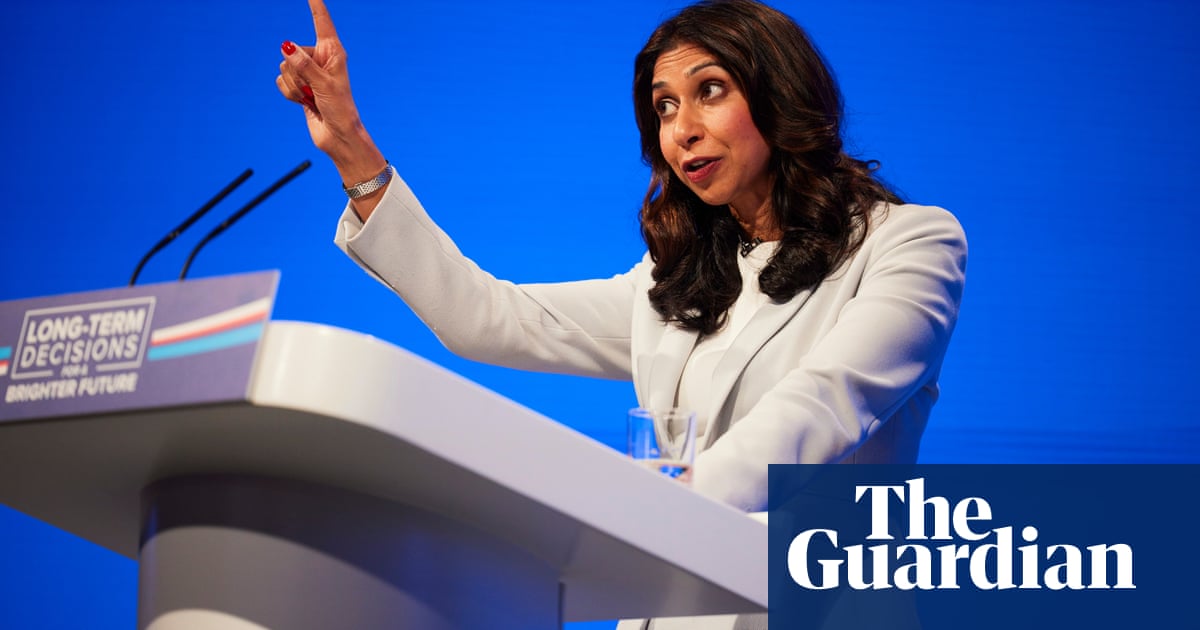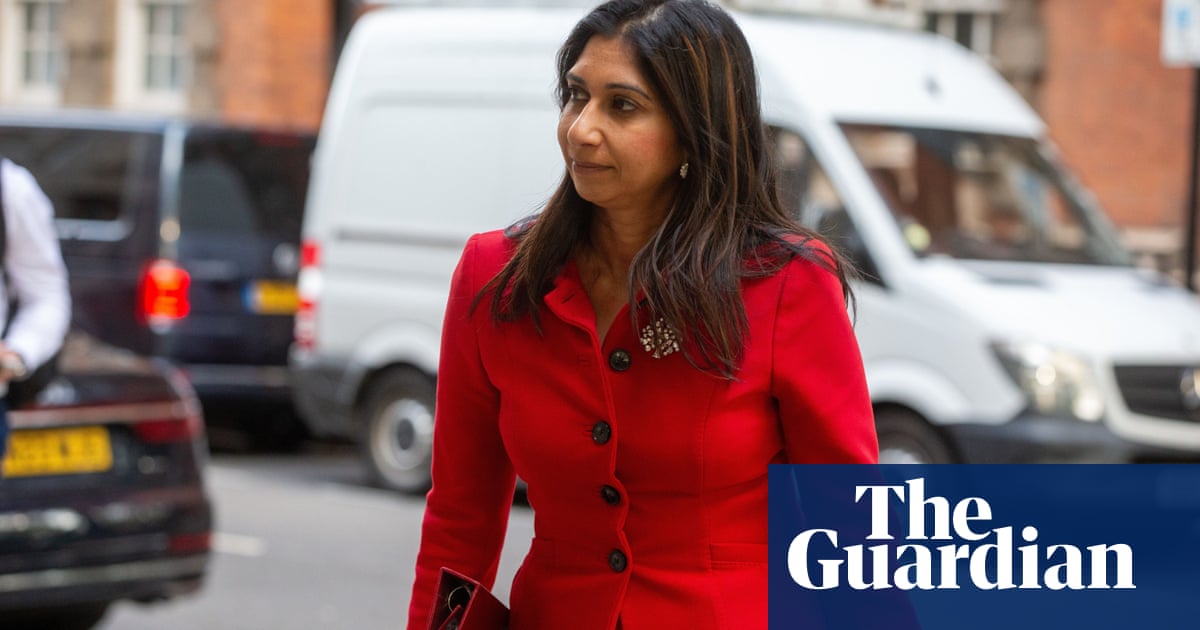
Suella Braverman has reiterated her wish to leave what she called the “politicised” European court of human rights (ECHR) and refused to rule out the mass tagging of asylum seekers, a move one refugee charity said would treat people as “mere objects”.
Marking a return to the political fray after a summer recess in which a series of Home Office policy hiccups prompted speculation she could be replaced as home secretary, Braverman said the government would “do whatever it takes” to send asylum seekers to Rwanda.
Braverman is a repeated critic of the court and the convention for which it is the watchdog, a stance that has brought her popularity among more rightwing Conservative MPs, with speculation she could stand again for leader if Rishi Sunak loses the general election.
Stepping up her attack on the convention, while Braverman said it was not currently the government’s plan to withdraw from it, she repeated her personal support for such a move.
“If we are thwarted by the courts, or indeed by Strasbourg, then we will have to do whatever it takes, ultimately, to ensure that we can stop the boats,” she told BBC Radio 4’s Today programme.
Asked if this meant leaving the European court, Braverman said: “My personal views are clear,” while adding that the government was “not thinking about that” immediately.
While the Strasbourg court, which interprets the European convention on human rights, has intervened in the Rwanda policy, preventing the deportation of an Iraqi national, this was only to delay it pending a final UK domestic decision in the man’s judicial review proceedings.
Downing Street is privately confident the ECHR is unlikely to be an obstacle to the overall Rwanda scheme if UK courts support it. The supreme court will rule on the plan in the autumn, after the appeal court said in June that it was unlawful.
Braverman nonetheless used her BBC interview to attack the ECHR: “Last year we saw very plainly how the Strasbourg court thwarted our attempt for flights to take off to Rwanda through an opaque process at the last minute, which undermined the decisions of this government.
“It’s a politicised court, it’s interventionist, it’s treading on the territory of national sovereignty, but no one’s talking about leaving the ECHR right now.”
Sacha Deshmukh, Amnesty International UK’s chief executive, said Braverman was “taking the country down a dangerous path”.
He said: “Lashing out at an international convention which has been integral to some of the UK’s most important recent developments – including the full decriminalisation of homosexuality, the criminalisation of modern slavery and a vital underpinning of the Good Friday agreement – shows how little the home secretary cares about or respects the law.”
The shadow justice secretary, Steve Reed, said leaving the European convention would be “dangerous and unnecessary”.
He said: “Do we really want to follow Putin by withdrawing from the ECHR, at the worst possible time, with the rule of law under sustained threat from resurgent authoritarianism across the world, and as Europe faces its largest security crisis since the second world war?
“These proposals are simply a distraction from the government’s own political failures.”
Alistair Carmichael, the Liberal Democrats’ home affairs spokesperson, said Braverman was “ramping up fears about refugees and migrants to garner support for changes to human rights laws that then hurt those who need them the most”.
Asked about reports that the Home Office plans to fit electronic tags to asylum seekers who arrive unofficially, given a shortage of secure accommodation in which they can stay, Braverman replied: “We’re exploring all options.”
She added: “We’ve just passed our landmark legislation in the form of the Illegal Migration Act. That will enable us to detain and remove those who have arrived here illegally … We need to await the outcome of our litigation in the supreme court before we can start operationalising the main aspects of the act.”
Enver Solomon, the chief executive of the Refugee Council, said mass tagging would amount to “treating people with callous disregard, as mere objects rather than vulnerable men, women and children in search of safety who should always be treated with compassion and humanity”.
He added: “This is not who we are as a country nor the Britain we aspire to be.”
Freedom of information data obtained by the Guardian revealed that a 12-month pilot scheme to electronically monitor asylum seekers that began in June last year had tagged 311 people by April this year.
Research by a group of charities into the pilot scheme said it created a series of harmful outcomes, including increased social isolation, stigma and a negative effect on mental health.
Asked about the Bibby Stockholm, the barge on which the government wants to house asylum seekers, Braverman said it was safe after the Fire Brigades Union threatened legal action because it regarded the vessel as a “death trap”.
This month the Home Office was forced to remove the first 39 asylum seekers from the barge only days after they had arrived because potentially deadly legionella bacteria was identified on board.
The home secretary refused to say when people would be housed there again: “We’re waiting for the processes to complete and once they are done, we will be moving people back on to the barge. I’m very confident about the safety standards on the barge.”




